Fast Food Labor Rights Movement Goes Global [PHOTOS]
Fast-food workers around the globe walked off the job in a coordinated one-day strike Thursday, joining their sign-bearing supporters and activists on the sidewalks in front of their establishments to demand larger paychecks from the world’s most recognized and profitable restaurant chains.
By taking the movement global, labor rights activists hope to increase pressure on these American companies, which are increasingly reliant on their operations abroad.
McDonald’s Corp. (NYSE:MCD), the largest eatery operator in the world that earned $1.2 billion in profit in the first three months of the year, has been the primary target, but the U.S.-based movement is demanding that all major fast food chains, including KFC, Pizza Hut, Domino’s and Burger King, fork over more hourly pay to their line cooks and cashiers.
Fast-food workers in the U.S. make an average of $9 an hour, according to the Bureau of Labor Statistics, 24 percent more than the federal minimum wage but lower than what some states and cities require. Many fast-food workers earn less than that in some of the country’s most expensive cities, like New York, and have difficulties obtaining full-time work as companies try to avoid paying health benefits by keeping workers under 30 hours a week.
In the U.S., workers and unions are demanding a minimum hourly wage of $15 and the right to organize without retaliation. In Wisconsin on Thursday, Bloomberg News reported that about 200 people rallied at a county courthouse and marched to a nearby shopping center, while in Atlanta a Burger King closed for the day after attempting to open its doors only to customers.
Demands by fast-food workers in other countries vary. In Indonesia workers are demanding a 5-percent service charge to be distributed to employees, while in Karachi, Pakistan, a local union rallied to simply for higher pay.
On Thursday, organizers lauded the one-day strike, which they said took place in more than 150 cities in the U.S. and about 80 elsewhere. CNN reported actions in “dozens” of U.S. cities and “several” countries. Twitter users have been posting images of demonstrations from Belgium to the Philippines.
Others have taken to Twitter to deride the demand for $15 an hour, echoing the sentiment expressed by former McDonald’s CEO Ed Rensi, who told Fox News last August that the move would “absolutely” shut down 15 to 20 percent of America's small businesses.
Fast Food Forward, the main organizing group backed by the U.S.-based Service Employees International Union, says it isn’t calling for a national minimum wage hike to $15 an hour and that its target is fast-food corporations and the franchises with which they do business. In the U.S., the fast-food industry has the largest disparity between executive pay and the average incomes of their bottom-rung employees.
At the same time, the largest quick-service restaurant chains consistently pay dividends – the money they give back to shareholders who hold their stock for certain period of time as an incentive to keep holding their stakes. McDonald’s, for example, paid out $801 million in the first three months of the year, or about 66 percent of the value of its net income for the quarter. The company currently pays shareholders 81 cents per common share, up from 37.5 cents in February 2008, two months into the last U.S. recession.
The strikes have been organized by the SEIU, which represents about 2.1 million workers, the International Union of Food, Agricultural, Hotel, Restaurant, Catering, Tobacco and Allied Workers’ Associations, based in Petit-Lancy, Switzerland, and local affiliates.
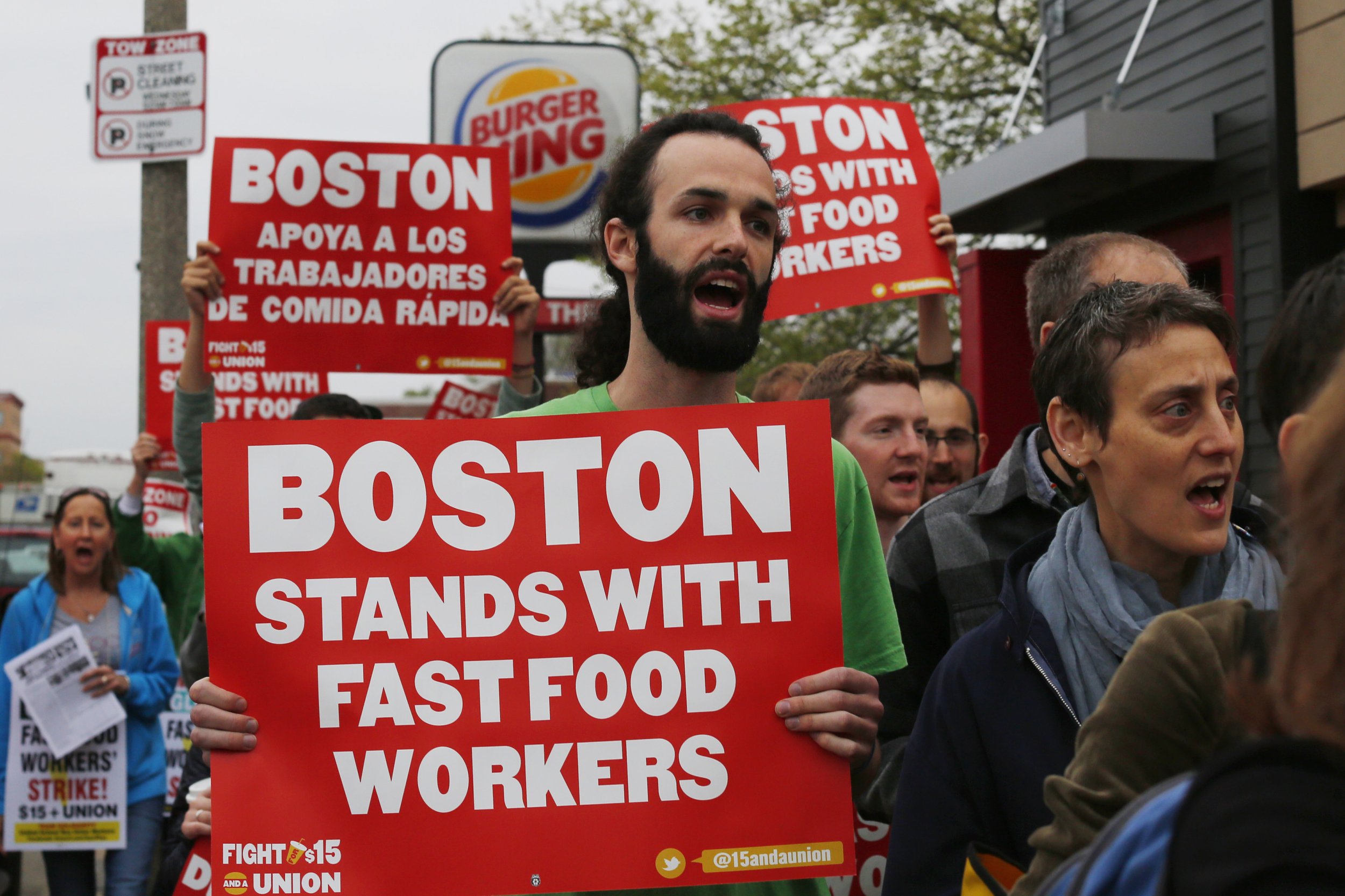
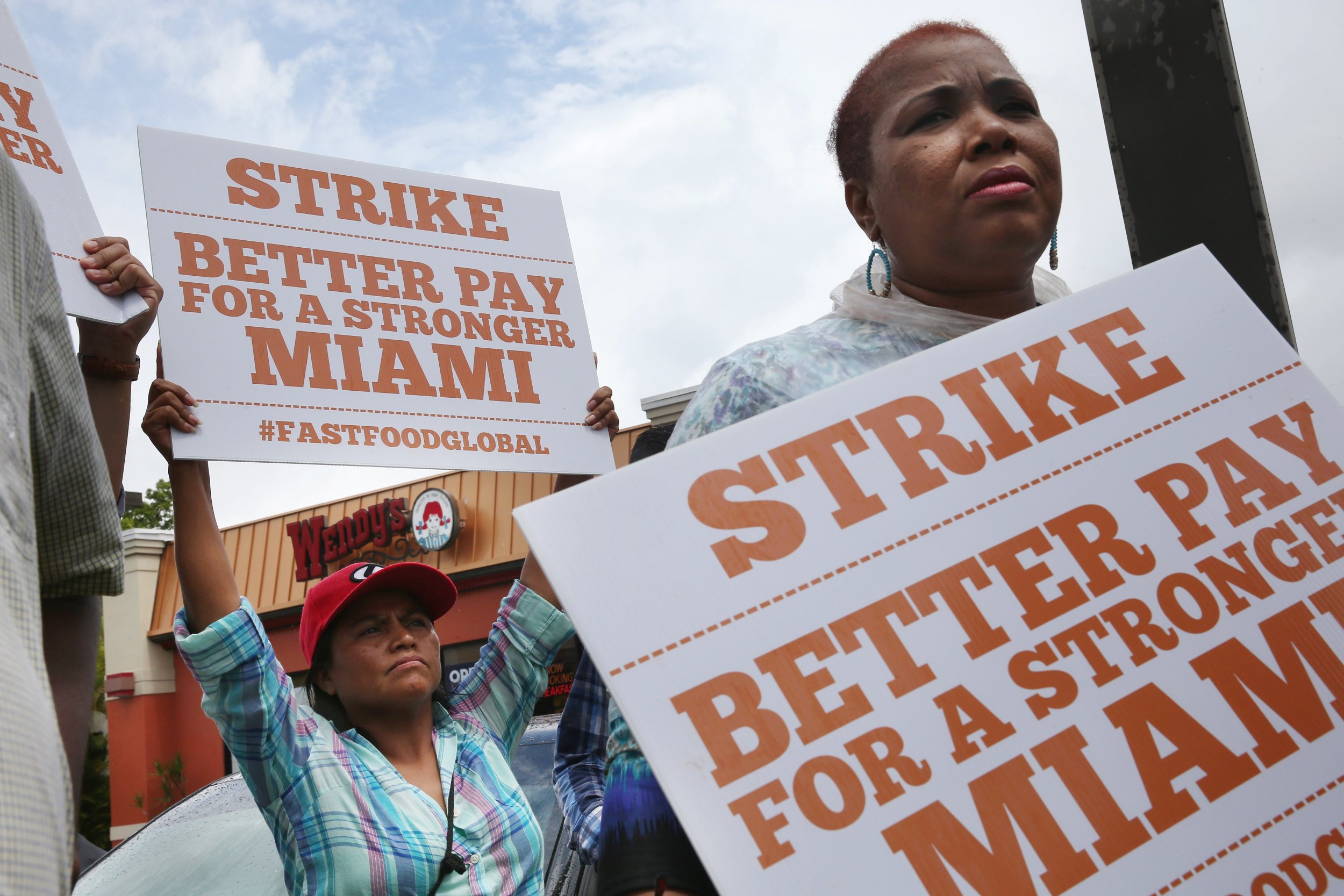
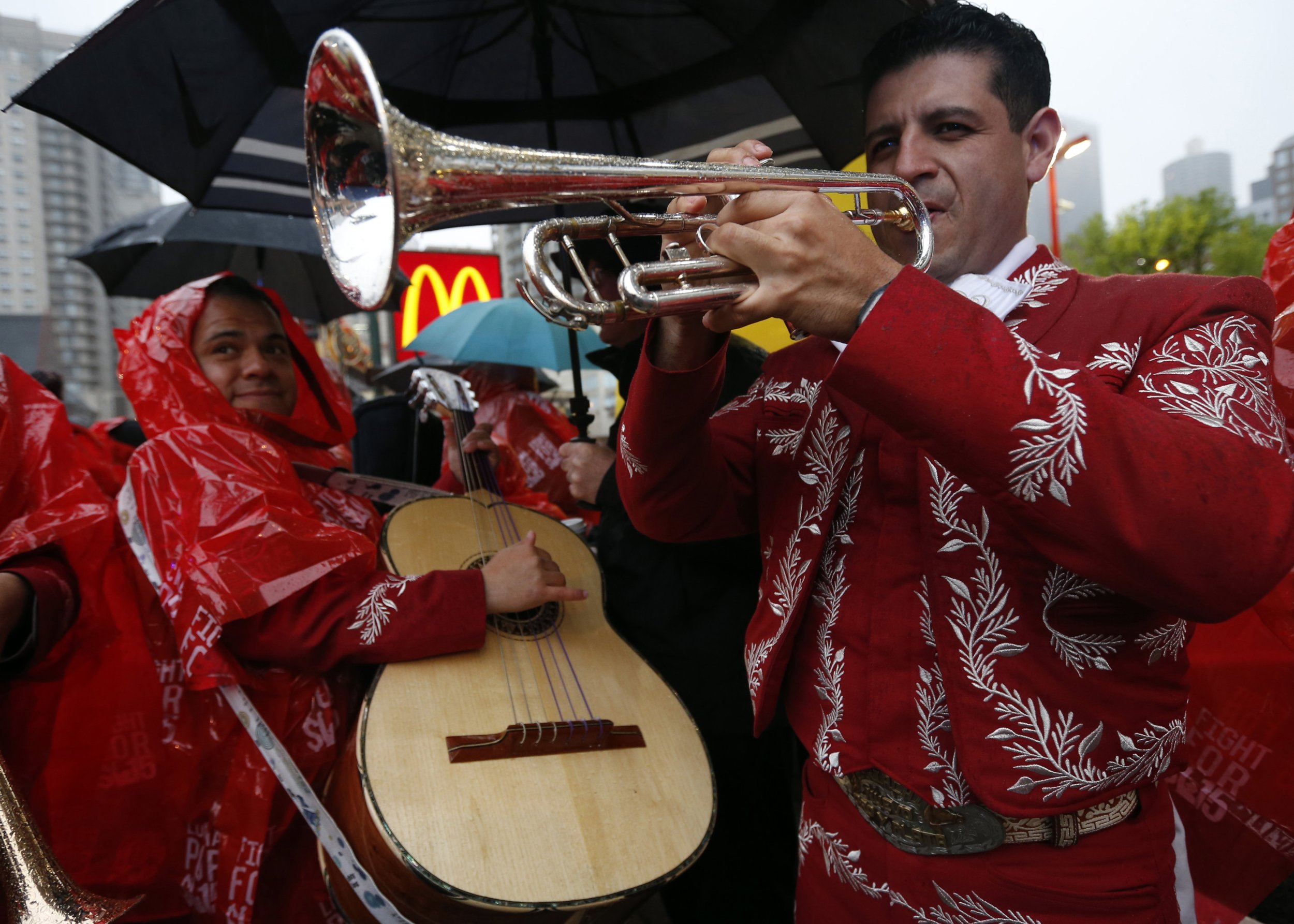
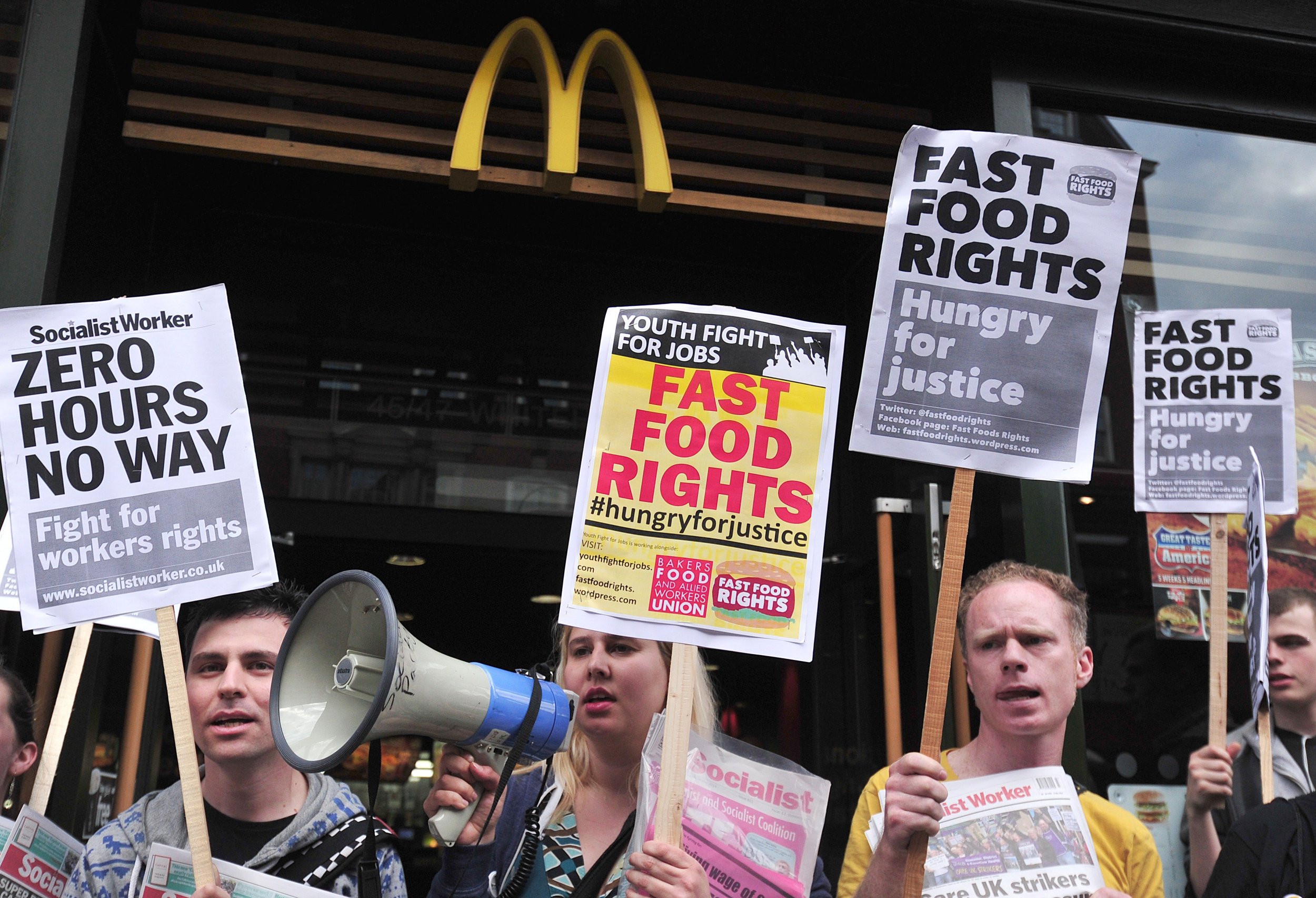
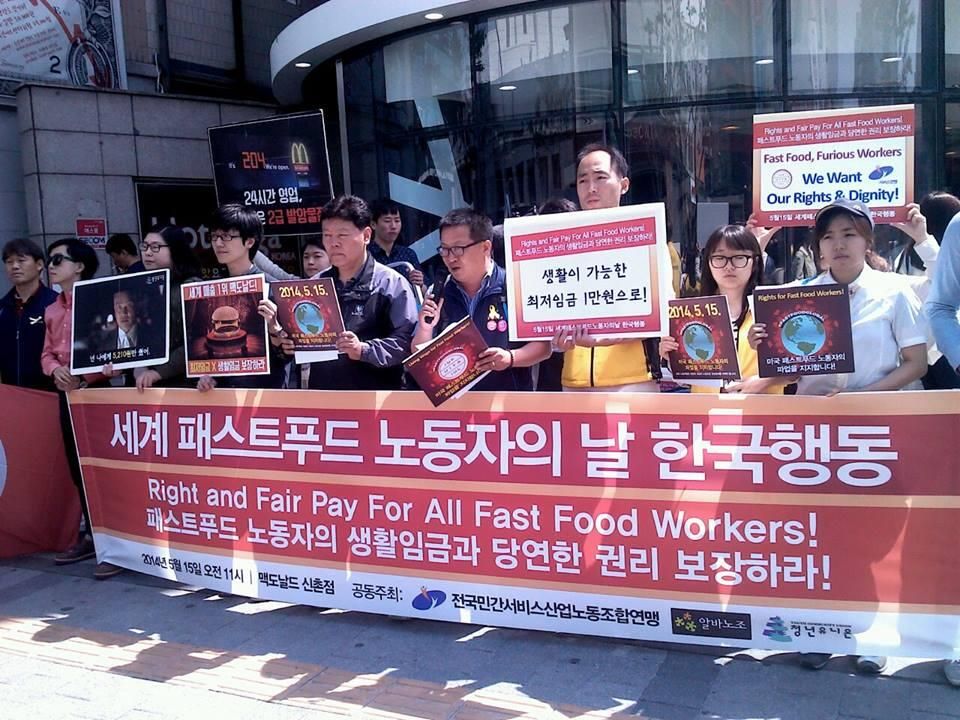
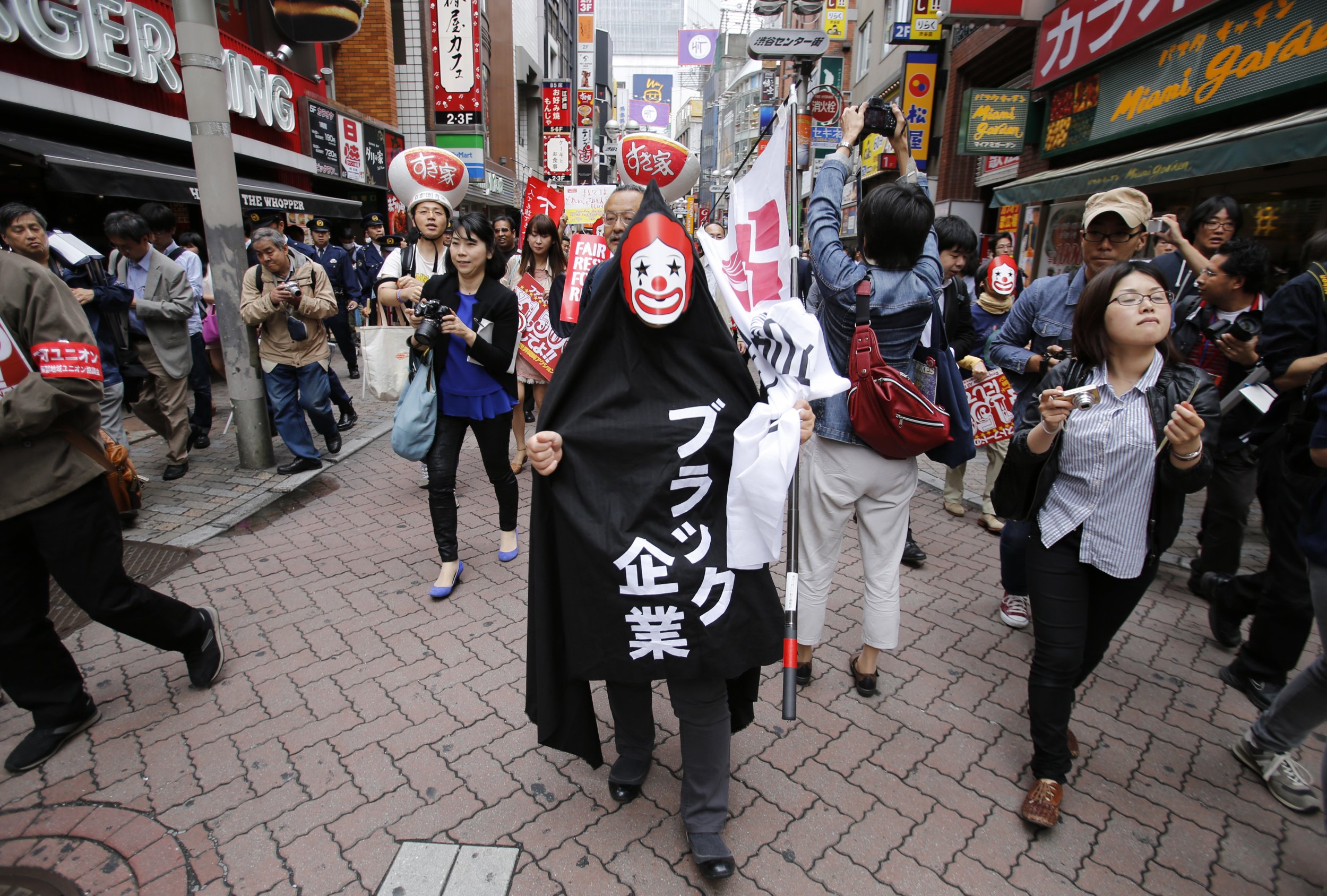
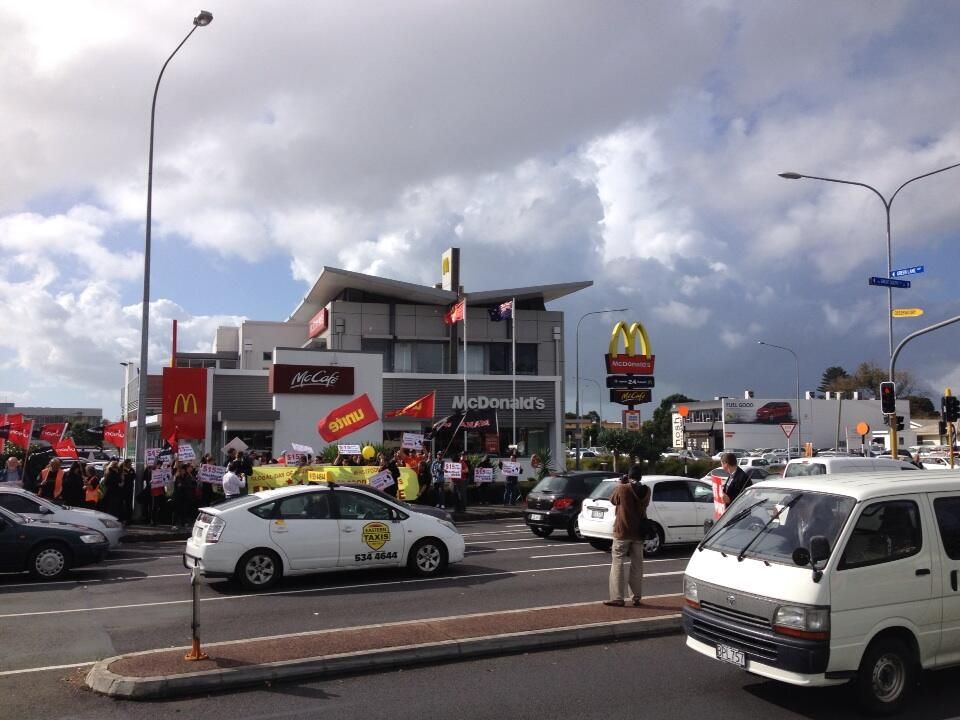
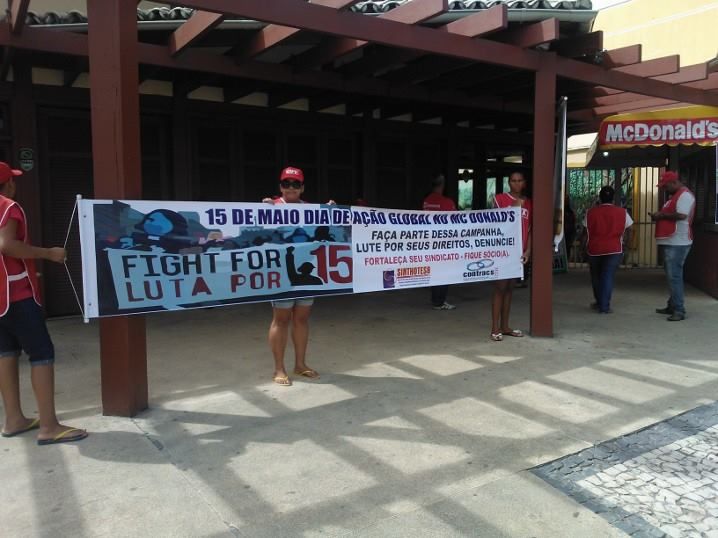
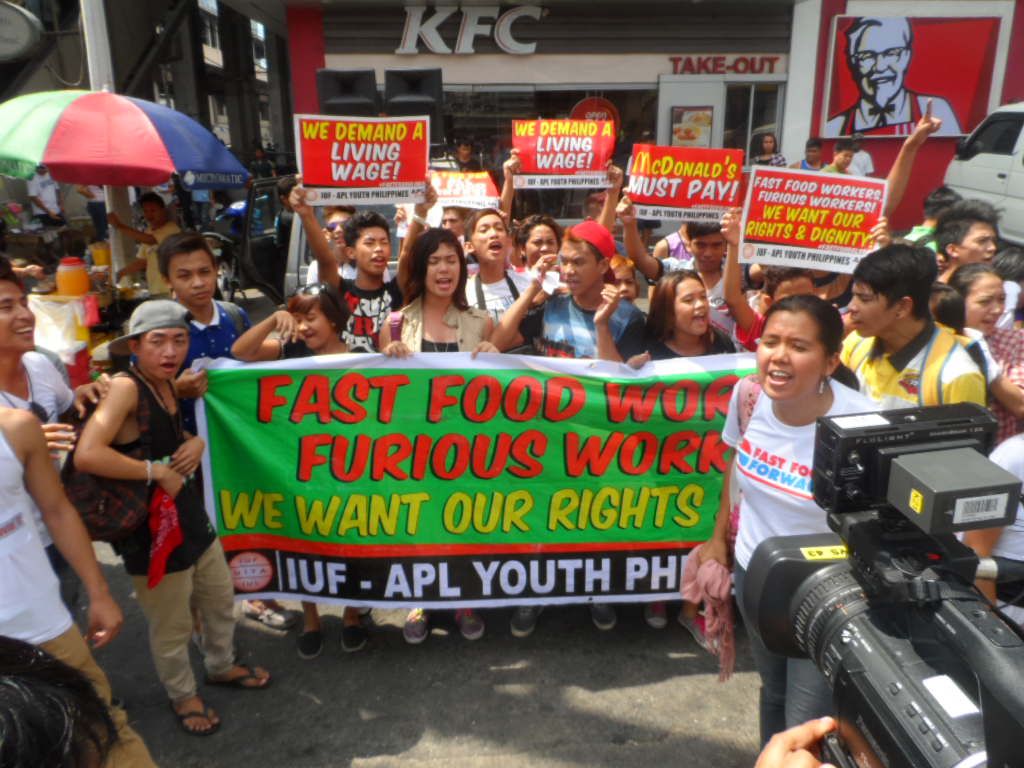
© Copyright IBTimes 2024. All rights reserved.






















